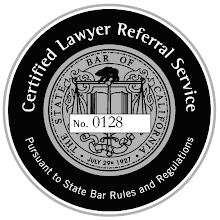The California Fair Employment and Housing Act prohibits an employer from discriminating against any employee because of that employee’s race. Because there is rarely “smoking gun” evidence of racial discrimination, circumstantial evidence will usually suffice. An inference of discrimination is usually raised by showing that the employee,
- Belongs to a protected class.
- Was subjected to an adverse employment action (like termination, demotion, suspension).
- Similarly situated employees outside the protected class were treated differently and more favorably.
In addition to raising an inference of discrimination in the manner set forth above, an employee may do so via statistical evidence, comparative evidence, or direct evidence. Direct evidence, such as discriminatory comments made by the decisionmaker, is often the most persuasive. However, in larger companies, it may be possible to use statistical analysis to demonstrate that the employer systematically discriminates against a particular race in hiring, promotions and terminations. Such evidence would raise an inference that the action taken against a particular employee of that race was also infected by racial animus or prejudice. Comparative evidence also raises an inference of discrimination by showing that different rules and standards were applied for persons of different races.
Because discrimination cases usually turn on specific facts, and there is usually a one year time limit for filing, it is important to consult with an attorney as soon as possible after a potentially discriminatory action has been taken.





Both state and federal law strictly ban racial discrimination in the workplace. Not only can workplace discrimination take place because of the worker’s race, but because of the race of the people with whom the worker associates outside of work. Racial discrimination lawyers help people facing race-based discrimination of any type in the workplace. Federal law Title VII states that acts that can affect a worker’s terms or conditions of employment fall under the definition of racial discrimination, which is illegal. The terms or conditions of employment include vacations you may take; the hours you are given; your role on your team, position within the company, or title you are given; your pay rate; and hiring and firing decisions. The California Fair Employment and Housing Act specifically says that a person’s employer may not take employment actions against him or her that can be considered adverse if these actions are motivated by racial discrimination.
ReplyDeleteThat's an informative post,friend!
ReplyDeleteI am posting this comment to let people know about the Sampath Law Firm.
The Sampath Law Firm (SLF) is a law firm that specializes in employment law.
The Sampath Law Firm is committed to representing honest, dedicated employees who have been wronged and who seek to vindicate their legal rights.
We understand that making the decision to speak with a lawyer is a very personal choice, and can often feel intimidating.
SLF provides highly experienced Discrimination Attorneys in Los Angeles, who will fight for your legal rights.
For more information, please Click here.